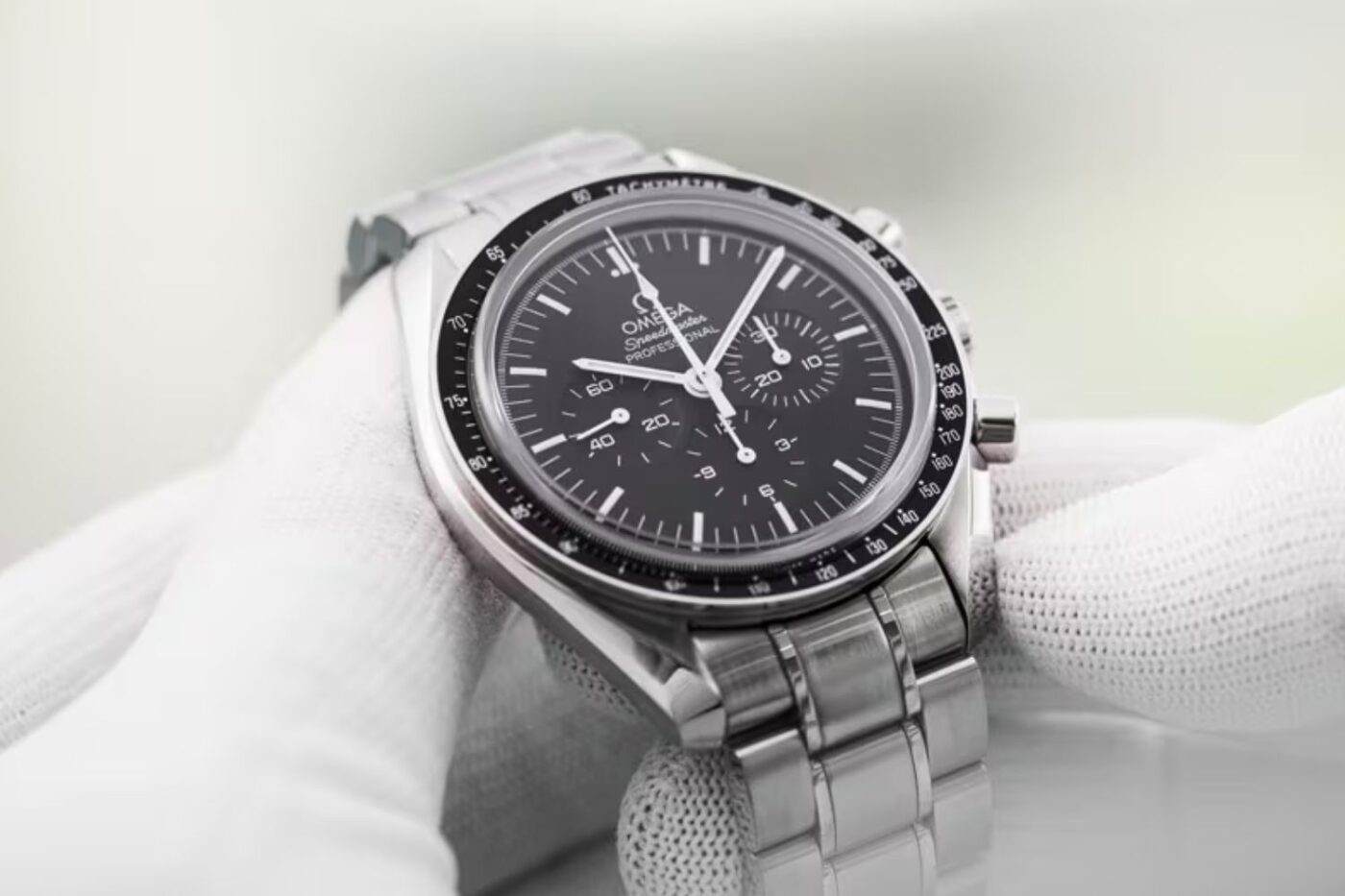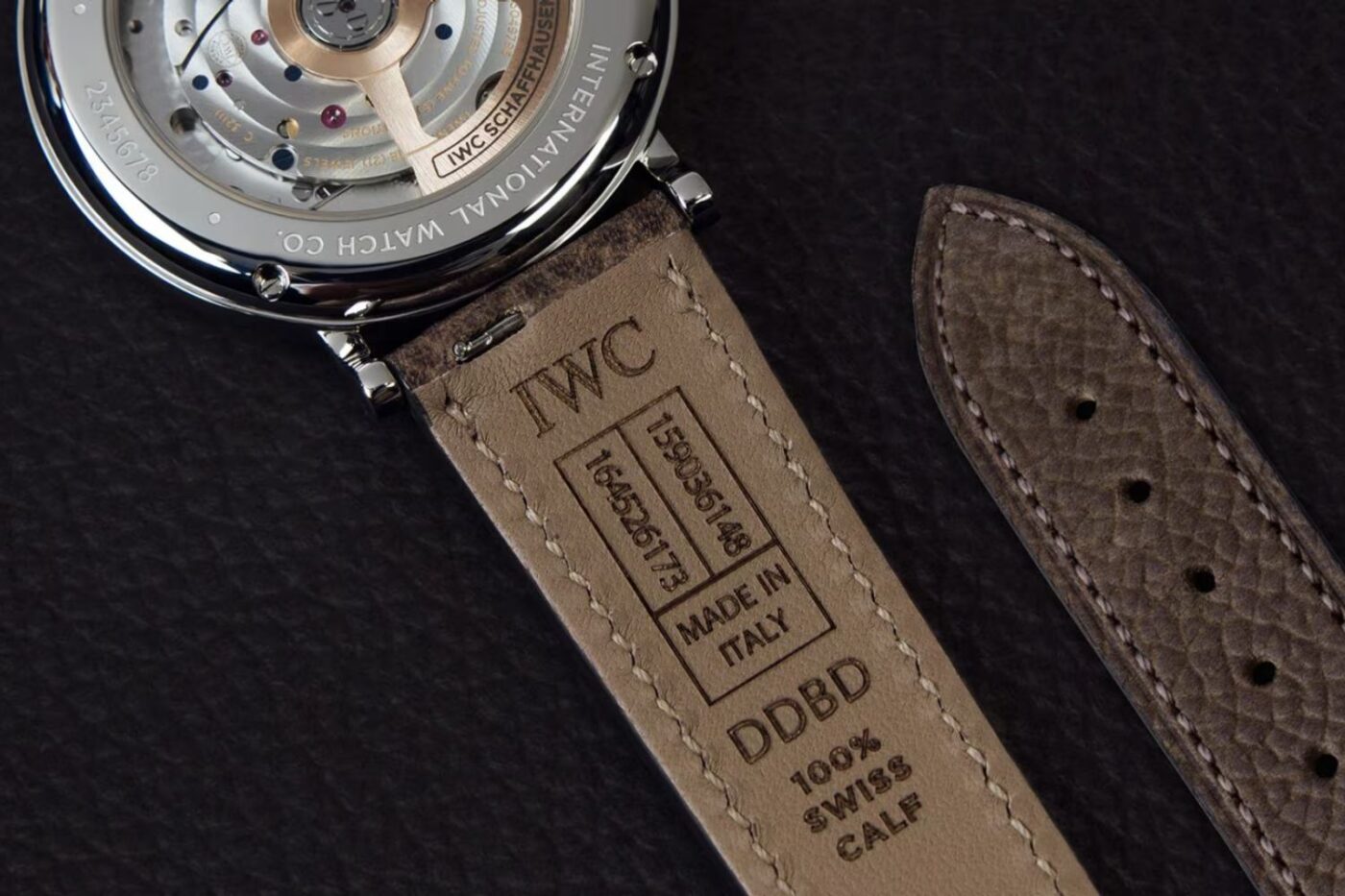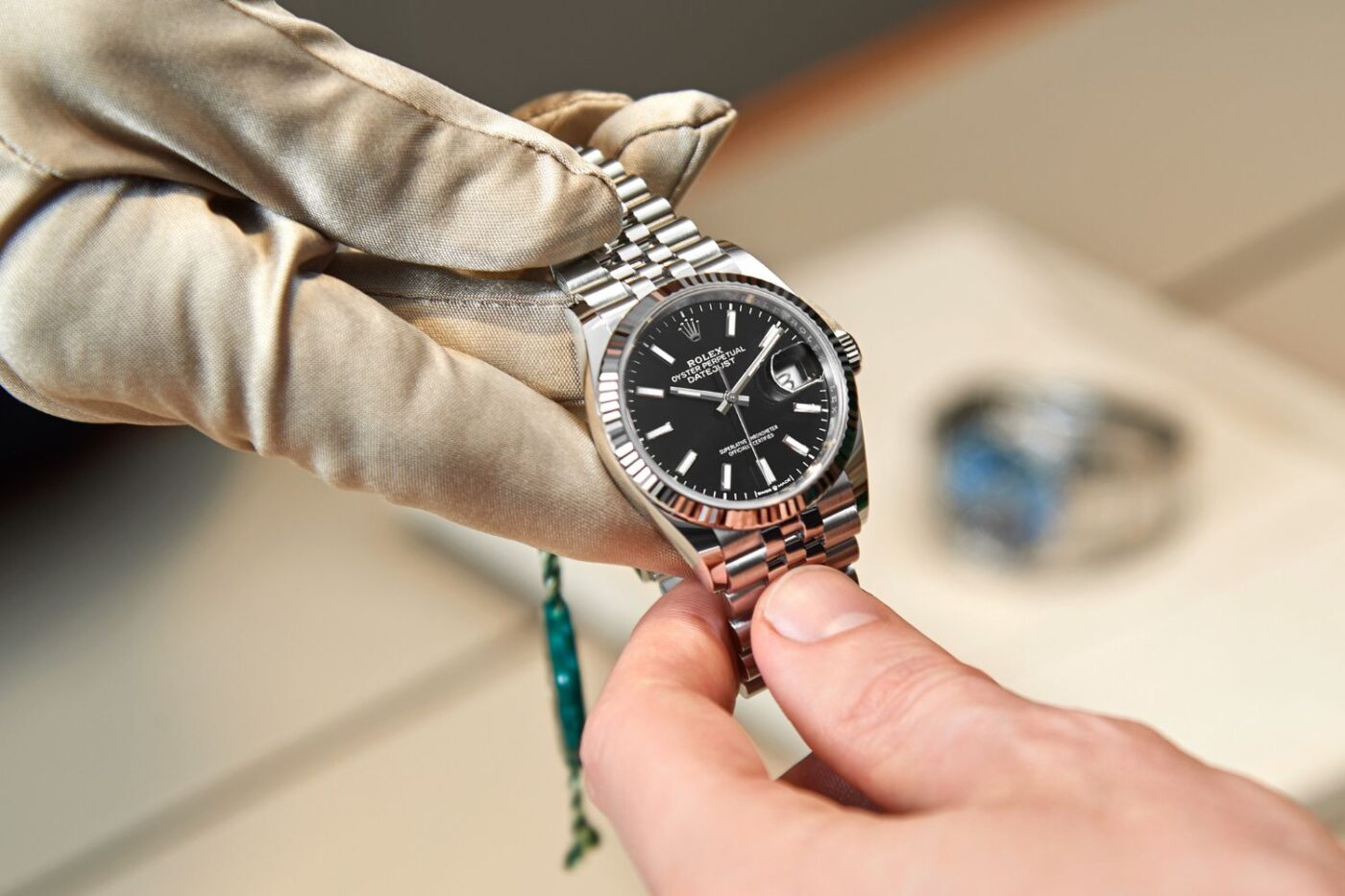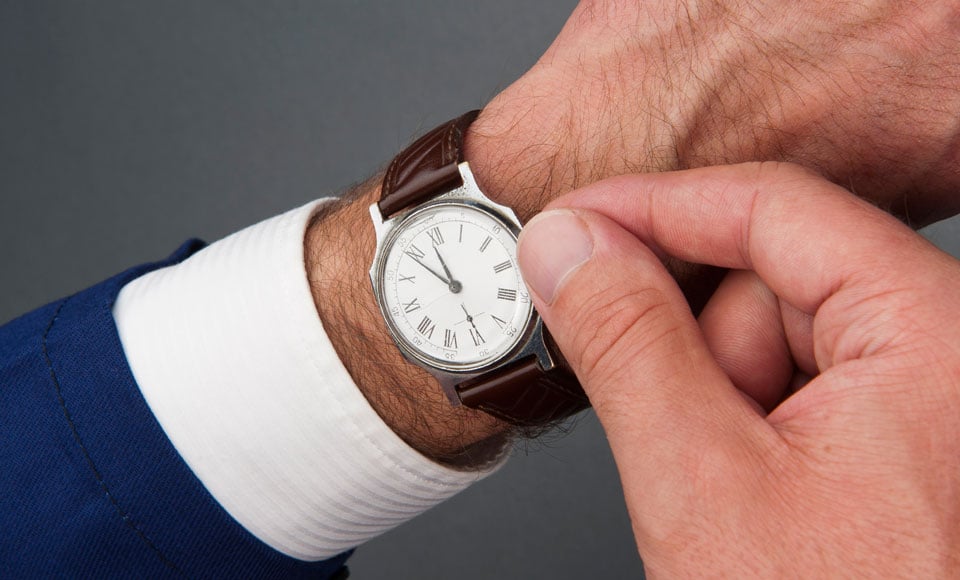- Don’t adjust your watch while it’s on your wrist.
- Clean your timepiece regularly.
- Water resistant doesn’t mean become a deep-sea diver.
Adjusting the time on that expensive watch while it’s still on your wrist? You’ve just broken a cardinal rule of horology. Whether it’s the first or the fifth in your horological arsenal, a Swiss timepiece is a style accessory like no other, and it, therefore, deserves to be treated that way.
As the old saying goes for classic timepieces, telling the time is just a part of the job. The remaining role of a watch is dedicated to showcasing the unique craftsmanship of a beautifully engineered mechanism, a statement which is an extension of a man’s own personality and style.
It shouldn’t come as a surprise then that there definitive guidelines from experts on how one should and should not care for their prized ticker. Think you’ll pass the test? Check out the best ways to properly care for your luxury timepiece below. You don’t have to tell us if you’re on the watch offender’s list… we’ll know from the state of your watch.
In this How To Look After Your Watch article.
Change The Time While It’s Off Your Wrist
When adjusting the time on your favourite timepiece: take a cue from the experts: You’ll notice that in the boutiques, the specialists only ever adjust the time when it’s off the wrist with the watch face pointed directly at themselves.
The reason behind this is due to the potential damage caused to the delicate winding stem while it’s your wrist, as lateral stress from twisting the crown while worn can lead to it yielding or snapping. So next time you need to make an adjustment, set aside whatever you’re holding, remove the watch, and wind it with care… It’ll save you a lot of heartache later on down the track.
Related Stories

Avoid Over-Tightening the Crown
You’re not capping off a Coke bottle here so don’t treat your mechanical watch like one. Over-tightening the crown can cause irreparable damage to the winding stem, so leave the muscle for the gym. The general rule is to stop exerting force as soon as the crown meets resistance.
Clean Your Timepiece Regularly
Like most items in a guy’s wardrobe, a clean timepiece is essential. Imagine spending thousands of dollars on your favourite watch, only to negate the biggest part of maintaining it. Dust, oils, and foreign particles can accumulate during wear, detracting from its original allure so dedicating just a few minutes each week to wipe down your timepiece can make a world of difference.
There are two proven ways to cleaning a watch: dry and wet. For non-water resistant timepieces, avoid moisture at all costs and use a soft dry cloth instead. Water-resistant watches can tolerate a bit of dampness; a lightly moistened cloth is perfect for cleaning the case and strap. For those with metal components, a mild soap solution and a fine toothbrush can get in those tricky spots more effectively, but soft strokes and a careful touch are needed here.
Store Your Watch Properly
Proper storage is vital for maintaining your watch’s functionality and appearance. I know it’s tempting to take your watch off and place it on your bed side table after a long day. But consider investing in a dedicated watch box or winder to protect it from dust and environmental elements.
Brands like Wolf are renowned for their stylish, handcrafted winders that not only maintain the precision of automatic watches but also serve as elegant additions to your room’s decor… and more importantly, extending the lifespan of your cherished timepiece.
Care For Leather Straps

So much attention is given to the watch itself that wearers often forget to show some TLC to the fine leather straps. The leather is a premium part of the timepiece, yet constant exposure to sunlight, moisture, and cosmetics can lead to early deterioration and unsightly stains.
In the most common scenario the leather will start to become discoloured if the natural deterioration isn’t properly managed, leaving behind unsightly stains on the strap. To prevent this, simply keep it dry whenever possible with a cloth. The strap’s integrity and ageing aesthetics will thank you for it later.
Avoid Showering And Swimming With Your Watch On
Guys, ‘water resistance’ is not the same as ‘waterproof’. While many watches boast impressive water resistance, repeated exposure can lead to seal deterioration, often revealed only when condensation forms beneath the crystal. To avoid this, steer clear of submerging your watch whenever possible. Professionals recommend checking a watch’s seal every 12 to 18 months to spot any early signs of deterioration.
Swimming with your watch is another bad habit that should be avoided – something that’s difficult in Australia’s climate. Designated diving watches are designed with this in mind, but ensure that the crown is tightened all the way before entering the water. Once under, avoid pressing buttons or adjusting the crown as this could allow water to seep inside.

If the watch comes into contact with salt or chlorinated water from the beach or pools, wash it down with fresh water immediately as this can damage the sensitive coatings and seals on the watch. Make sure to clean thoroughly with a soft brush to dislodge any fine sand or salt particles.
Modern watches crafted from titanium are often more resistant to corrosion, but they are not immune to the effects of harsh chemicals and saltwater. Consistent care and attention to your timepiece will ensure it remains a reliable companion for years to come.
Don’t Adjust The Date When The Hour Hand Is Between 9 And 3 O’Clock
This little-known fact is crucial for preserving the integrity of your timepiece. Always check the position of the hour hand before making date adjustments to keep your watch in optimal condition as adjusting the date when the hour hand is between 9 and 3 can damage the internal gears and pinion.
Follow Proper Mechanical Winding Rules
Automatic watches need to be worn daily in order to retain its peak timing performance. The right amount of turns to power the automatic watch should always be between 20 and 40. Additionally if the watch is worn on the wrist daily, it should be wound twice a week. For less frequent use, wind it once every two weeks.

Avoid Direct Sun Exposure
Now I know this one is often unavoidable, especially living in a warm climate like Australia. But it’s important to keep an eye on your favourite timepiece during extended periods of sun exposure, as excessive sunlight can fade and damage the watch’s dial and strap over time.
When your watch is off your wrist, remember to store it in a cool, shaded area, away from direct sunlight so that it continues to look like it’s come straight out of the boutique.
Avoid Subjecting Your Watch To Extreme Temperatures, Magnetic Fields And Shock
Even the obvious will sometimes get broken so it’s always worth mentioning again. Avoid subjecting your timepiece to extreme heat or cols as this can affect its performance and accuracy. Anything over 60°C or under 0°C is no place for a mechanical or automatic watch as this can permanently damage the mechanism from parts expanding whilst moving or becoming brittle and snapping.
Magnetic fields can also interfere with a watch’s timing integrity and, in severe cases, halt the movement altogether. Avoid leaving your mechanical watch around speakers, fridges, computers and anything else with magnets. Unexpected shocks can damage the sensitive components of your watch so keep it in a safe place when it’s not worn and avoid rapid movements with your hands and arms when it is on you.
Protect Your Watch From Foreign Chemicals
Fine luxury watches often have cases treated for protection but subjecting it to harsh chemicals can still cause it damage.
Ensure that your timepiece doesn’t come into regular contact with things such as cosmetics, fragrances, detergents, alcohol based products or anything else with an acidic base. In the worst case scenario, you could be seeing a hefty repair bill for damage to the case, bezel markings, leather strap or bracelet.
